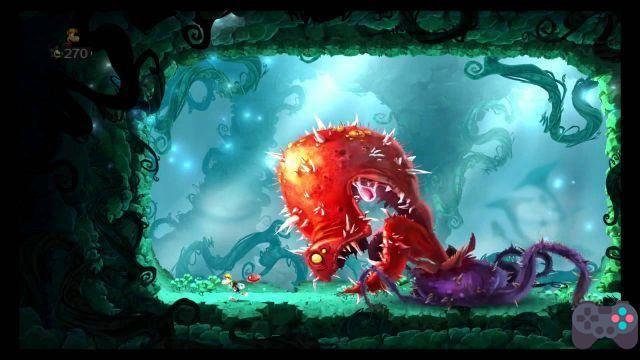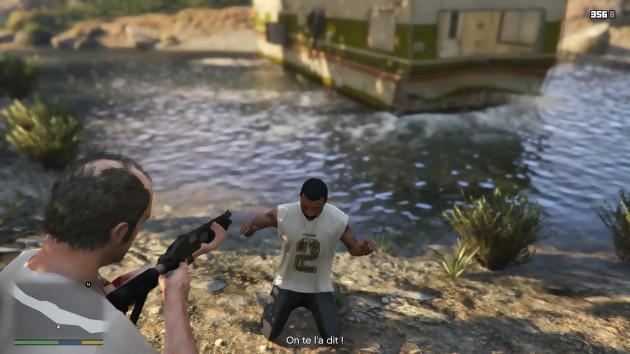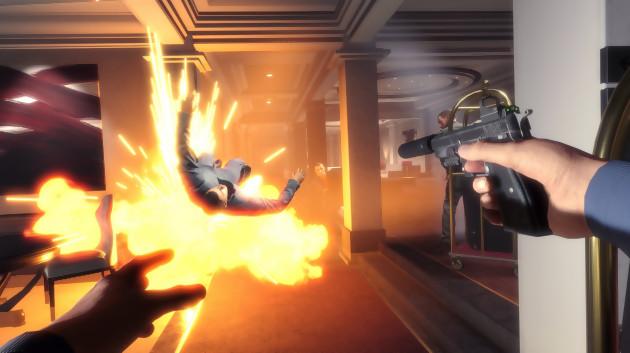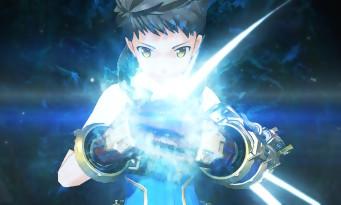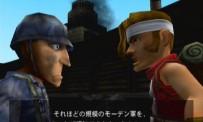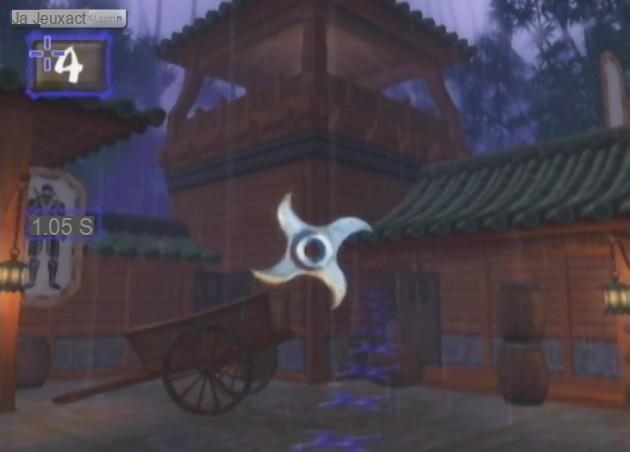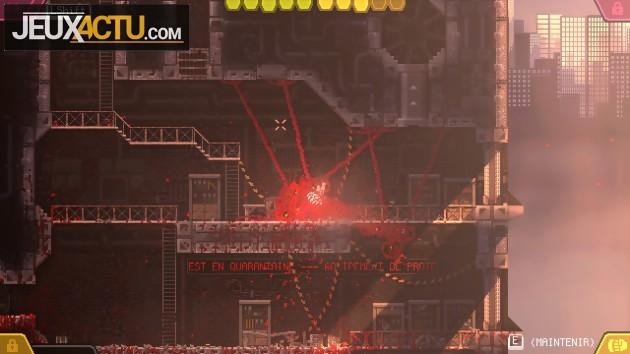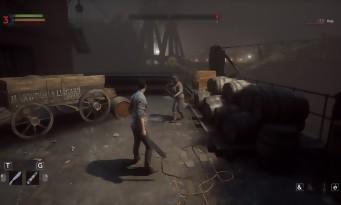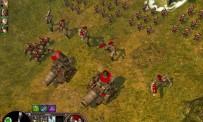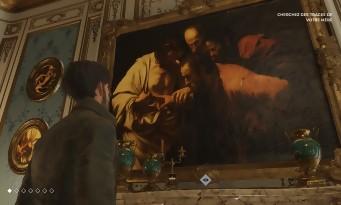 Composed largely of former developers from Ubisoft and Cyanide, the Bordeaux studio Big Bad Wolf is therefore tackling a mountain. The method used for this seems the right one: keep the fundamentals of the genre, and enrich it with new mechanics. Like a classic adventure game, The Council therefore offers us to evolve in a relatively limited number of sets, to observe certain details and to collect some objects which could be useful later. And like most narrative adventure games, French production confronts us with difficult choices, whether in terms of answers to give during multiple-choice questionnaires or situations to decide (help or talk to such a character rather that this other seems to be the main type of dilemma here at the moment). To tell the truth, the studio could have stopped there, giving us a more or less good clone of Telltale productions, and praying for success. But fortunately, their ambition goes further than that.
Composed largely of former developers from Ubisoft and Cyanide, the Bordeaux studio Big Bad Wolf is therefore tackling a mountain. The method used for this seems the right one: keep the fundamentals of the genre, and enrich it with new mechanics. Like a classic adventure game, The Council therefore offers us to evolve in a relatively limited number of sets, to observe certain details and to collect some objects which could be useful later. And like most narrative adventure games, French production confronts us with difficult choices, whether in terms of answers to give during multiple-choice questionnaires or situations to decide (help or talk to such a character rather that this other seems to be the main type of dilemma here at the moment). To tell the truth, the studio could have stopped there, giving us a more or less good clone of Telltale productions, and praying for success. But fortunately, their ambition goes further than that. Thus, a large layer of social interactions is added to the usual game mechanics. In particular, you must choose a class for the character you play (don't panic, we will come back to the scenario later), to choose from three: Diplomat, Occultist or Detective. This gives you direct access to the five skills related to the selected class, without forbidding you to approach the others afterwards. Simply, it will cost you less points to level up your primary skills throughout the adventure than to unlock or level up other skills. The tree gives access to Etiquette, Conviction, Politics, Diversion and Linguistics for the first branch, Subterfuge, Science, Erudition, Occultism and Manipulation for the second, and finally Interrogation, Vigilance, Psychology, Logic and Agility for the third. Depending on the skills you have developed, and the level to which you have pushed each of them, you will have access to different choices of dialogues, different actions and even the possibility or not of noticing certain details in the scenery or on your interlocutors.
Thus, a large layer of social interactions is added to the usual game mechanics. In particular, you must choose a class for the character you play (don't panic, we will come back to the scenario later), to choose from three: Diplomat, Occultist or Detective. This gives you direct access to the five skills related to the selected class, without forbidding you to approach the others afterwards. Simply, it will cost you less points to level up your primary skills throughout the adventure than to unlock or level up other skills. The tree gives access to Etiquette, Conviction, Politics, Diversion and Linguistics for the first branch, Subterfuge, Science, Erudition, Occultism and Manipulation for the second, and finally Interrogation, Vigilance, Psychology, Logic and Agility for the third. Depending on the skills you have developed, and the level to which you have pushed each of them, you will have access to different choices of dialogues, different actions and even the possibility or not of noticing certain details in the scenery or on your interlocutors.
CHOICES AND CONSEQUENCES
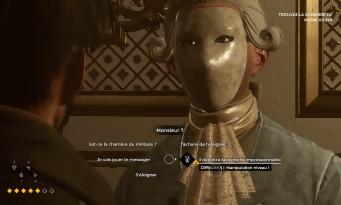 Playing intelligently on the frustration of the player, the adventure does not hesitate to inform you of the skill that should have been had to access such dialogue or such action. The uncompromising gameplay even adds an extra dose of difficulty via an effort point system, which you must spend to access the most effective actions and dialogues. If you have the right ability at the right time but have already spent too many action points, too bad for you! Unfortunately, this system seems a little too artificial, especially since you have to drink a "magic" potion to recover a few points, and you sometimes force yourself not to explore a branch to which you have access, just to save your effort points. . Or, on the contrary, we find ourselves stupidly short of points at a crucial moment, which forces us to take a path that we would have liked to avoid. Likewise, the dilemmas presented to us at certain points (the equivalent of "saving such-and-such a character" in The Walking Dead) don't always hold water. Talking with an important character should not prevent us from talking to another later.
Playing intelligently on the frustration of the player, the adventure does not hesitate to inform you of the skill that should have been had to access such dialogue or such action. The uncompromising gameplay even adds an extra dose of difficulty via an effort point system, which you must spend to access the most effective actions and dialogues. If you have the right ability at the right time but have already spent too many action points, too bad for you! Unfortunately, this system seems a little too artificial, especially since you have to drink a "magic" potion to recover a few points, and you sometimes force yourself not to explore a branch to which you have access, just to save your effort points. . Or, on the contrary, we find ourselves stupidly short of points at a crucial moment, which forces us to take a path that we would have liked to avoid. Likewise, the dilemmas presented to us at certain points (the equivalent of "saving such-and-such a character" in The Walking Dead) don't always hold water. Talking with an important character should not prevent us from talking to another later.
Playing intelligently on the frustration of the player, the adventure does not hesitate to inform you of the skill that should have been had to access such dialogue or such action.
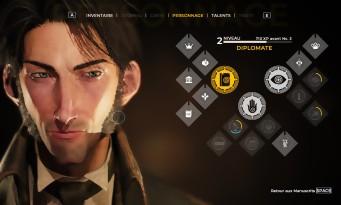 Other than that, the rest of the game mechanics work well. One thinks in particular of "Confrontations", which can be roughly defined as dialogue duels. During these sequences we are entitled to a certain number of blunders (ie bad answers), and if we ever exceed it, the verbal contest is definitively lost. What would have happened if they won? You will have to restart the whole adventure to find out, because the choices here are final. This ensures excellent replayability for the title, including in the case of dilemmas, some of which have absolutely major consequences for the rest of the events. Speaking of sequels, the episodic format requires caution since there's no guarantee that future episodes will be as good as the first. But we can also be positive on this point, considering that future segments of the adventure will correct the few flaws of the first chapter.
Other than that, the rest of the game mechanics work well. One thinks in particular of "Confrontations", which can be roughly defined as dialogue duels. During these sequences we are entitled to a certain number of blunders (ie bad answers), and if we ever exceed it, the verbal contest is definitively lost. What would have happened if they won? You will have to restart the whole adventure to find out, because the choices here are final. This ensures excellent replayability for the title, including in the case of dilemmas, some of which have absolutely major consequences for the rest of the events. Speaking of sequels, the episodic format requires caution since there's no guarantee that future episodes will be as good as the first. But we can also be positive on this point, considering that future segments of the adventure will correct the few flaws of the first chapter.
ILLUMINATI CONFIRMED
 In any case, it is almost certain that the game will retain its scriptwriting and artistic assets. Because even if it does not lack humor, the adventure does not wallow in ease by using a fun or contemporary universe. Quite the contrary, the scenario plunges us into the dark years that followed the French Revolution. We are in 1793, and we play Louis de Richet, a member of a secret society in which his mother plays a major role. The latter having disappeared during a meeting being held on a private island and organized by the mysterious Lord Mortimer, Louis goes in search of her. This will give him the opportunity to cross paths with many illustrious people, including George Washington and Napoleon Bonaparte. This immediately enhances the interest of the adventure. By mixing historical reality with a scenario mixed with occultism and conspiracy, the game is likely to appeal to quite different audiences. Moreover, the developers warn us in the introduction that The Council is “probably a fiction” and that it is inspired by “events and historical figures”. In a totally out of place and WTF way, they also tell us on the same screen that the game "was designed, developed and produced by a multicultural team of diverse beliefs, sexual orientations and gender identities." We don't see how the religion or the sexuality of the developers interests us, but let's move on...
In any case, it is almost certain that the game will retain its scriptwriting and artistic assets. Because even if it does not lack humor, the adventure does not wallow in ease by using a fun or contemporary universe. Quite the contrary, the scenario plunges us into the dark years that followed the French Revolution. We are in 1793, and we play Louis de Richet, a member of a secret society in which his mother plays a major role. The latter having disappeared during a meeting being held on a private island and organized by the mysterious Lord Mortimer, Louis goes in search of her. This will give him the opportunity to cross paths with many illustrious people, including George Washington and Napoleon Bonaparte. This immediately enhances the interest of the adventure. By mixing historical reality with a scenario mixed with occultism and conspiracy, the game is likely to appeal to quite different audiences. Moreover, the developers warn us in the introduction that The Council is “probably a fiction” and that it is inspired by “events and historical figures”. In a totally out of place and WTF way, they also tell us on the same screen that the game "was designed, developed and produced by a multicultural team of diverse beliefs, sexual orientations and gender identities." We don't see how the religion or the sexuality of the developers interests us, but let's move on...
By mixing historical reality with a scenario mixed with occultism and conspiracy, the game is likely to appeal to quite different audiences. Moreover, the developers warn us in the introduction that The Council is “probably a fiction” and that it is inspired by “events and historical figures”.
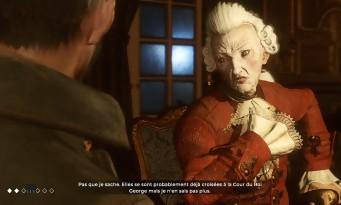 Let's focus instead on the use of numerous paintings by masters in the sets, which is a skilful and effective way of imposing an artistic touch at little cost. Which doesn't mean the game lacks personality, far from it. The artistic direction, "inherited" as original, is extremely attractive. The care given to the very Versailles decorations hits the mark, while the various interlocutors all have a real face. Admittedly, the female characters are less successful than their male counterparts and, from a purely technical point of view, the movements of the hero clearly lack flexibility. But in the end, we especially remember the strength of the faces, marked and singular. Moreover, the singularity is perhaps the main quality of the adventure, which is pleasantly off the beaten track. Let's hope that the next episodes will be as good, and even better!
Let's focus instead on the use of numerous paintings by masters in the sets, which is a skilful and effective way of imposing an artistic touch at little cost. Which doesn't mean the game lacks personality, far from it. The artistic direction, "inherited" as original, is extremely attractive. The care given to the very Versailles decorations hits the mark, while the various interlocutors all have a real face. Admittedly, the female characters are less successful than their male counterparts and, from a purely technical point of view, the movements of the hero clearly lack flexibility. But in the end, we especially remember the strength of the faces, marked and singular. Moreover, the singularity is perhaps the main quality of the adventure, which is pleasantly off the beaten track. Let's hope that the next episodes will be as good, and even better!




